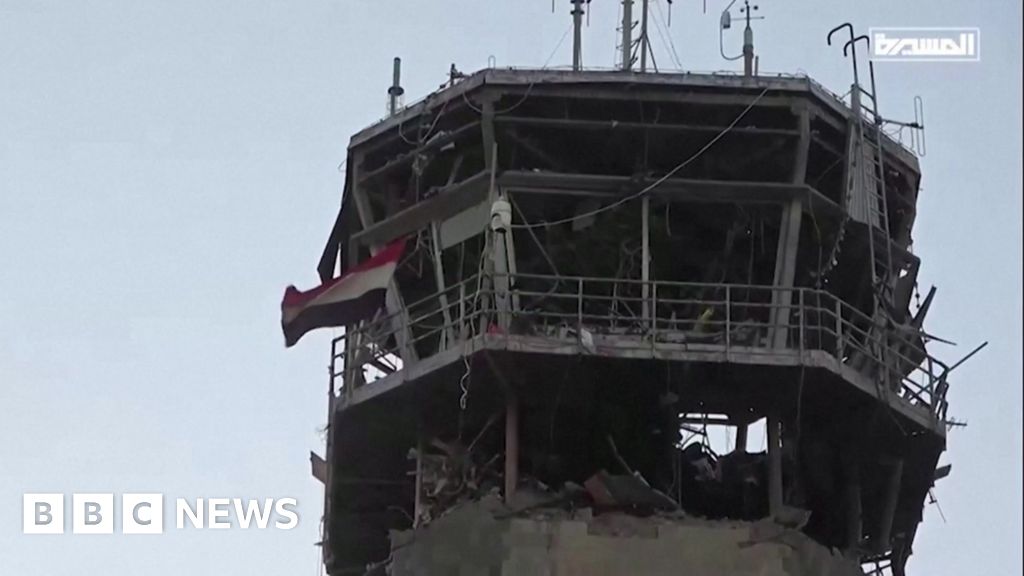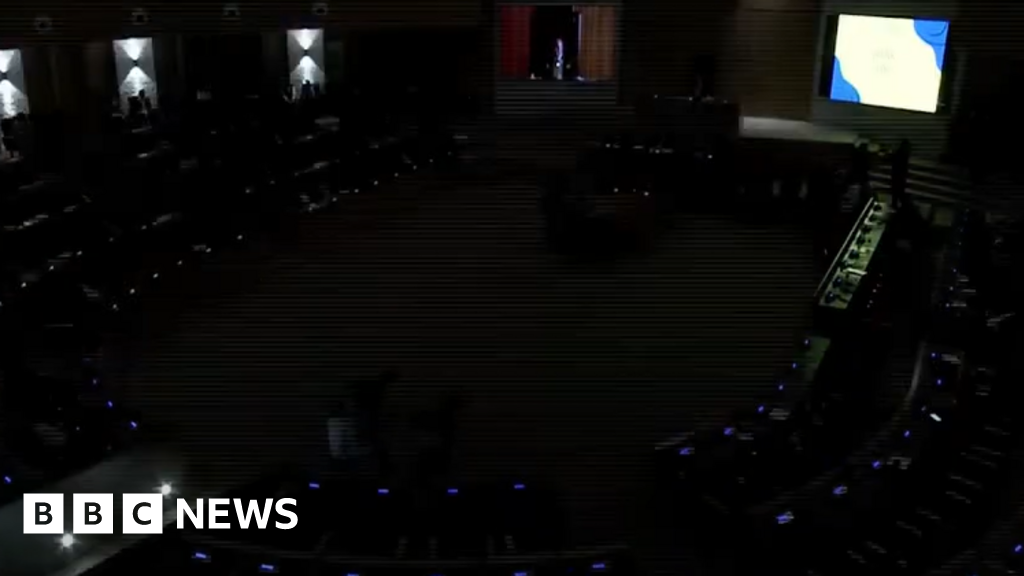BASHAR al-Assad cowardly told his office he was going home before fleeing to the airport to be smuggled out of the country.
The tyrant didn't even tell some of his closest family with one of his cousins shot dead by rebels in an ambush trying to flee Damascus.
Assad told almost no one amongst his closest staff or advisers that he was planning to flee the country, Reuters reports.
He continued to act like he would stay and fight - even meeting with army chiefs hours before he escaped telling them to keep fighting and that Russia was coming to help.
Assad told his staff at the end of Saturday when he finished work that he was going home.
He even told his media adviser to come to his home and write a speech.
But, when she got there, she didn't find the tyrant who had instead fled to the airport.
Nadim Houri, executive director of the Arab Reform Initiative regional think-tank, told the outlet: "He let his supporters face their own fate."
They said: "Assad didn't even make a last stand. He didn't even rally his own troops."
Assad also didn't inform some in his family like his younger brother Maher who escaped by flying a helicopter to Iraq and then Russia.
Assad's maternal cousins, Ehab and Eyad Makhlouf, were also left in the dark Damascus fell to the rebels.
The pair tried to flee in a car, but rebels ambushed them and shot dead Ehab and wounded Eyad.
Moment TV crew discovers Syrian prisoner who didn’t realise Assad had been toppled as he says ‘oh god, there’s light’
His wife, children, and in-laws had gone earlier to Russia, apparently aware of the plan to escape the country.
Assad was then flown out of Syria on a plane which had its transponder switched off to avoid any kind of tracking, Bloomberg reported.
Russian dictator Vladimir Putin personally granted political asylum to Assad on Sunday just hours before rebels took the presidential palace.
Russian government agents are said to have persuaded Assad to flee immediately as rebels continued to gain key cities across Syria as they believed he was set to lose the fight.
Reuters reports that Qatar and Turkey made arrangements with the rebels to help Assad's exit.
Moscow also helped get their military plane carrying Assad from a Russian airbase through other states' airspace.
The Syrian Prime Minister wasn't even aware of the escape plan.
Mohammed Jalali, said he spoke to Assad on the phone on Saturday night at 10.30pm.
He told Saudi-owned Al Arabiya TV this week: "In our last call, I told him how difficult the situation was and that there was huge displacement (of people) from Homs toward Latakia … that there was panic and horror in the streets.
He replied: 'Tomorrow, we will see... Tomorrow, tomorrow', was the last thing he told me."
Jalali also tried to speak to call Assad on Sunday but there was no response.
Assad also applied for asylum in the UAE, but the Emiratis turned him down as they worried about blowback from the US.
When rebels arrived at the presidential palace they found food on the stove and treasured items behind like family photo albums.
The Syrian dictator and his family may now be living in one of the 20 Moscow apartments his extended family owns, looking to maintain their luxurious lifestyle despite being in exile.
Purchased in the prestigious Moscow City district, the apartments are said to be worth more than £30 million in recent years, showing just how safe the Assads are in their pal Putin's country.
The Assad Dynasty

THE Assad dynasty in Syria began with Hafez al-Assad - who seized power in 1971 through a military coup and established an authoritarian regime.
His rule focused on centralised government control, military strength, suppression of dissent, aligning Syria closely with the Soviet Union, and an anti-Israel stance.
He established a cult of personality and corruption flourished as loyalty to Hafez became the most important value.
Bashar was not the first choice to succeed his father, with his elder son Bassel groomed to take over the role.
Bashar was working as an ophthalmologist at Western Eye Hospital in London when Bassel died in a car crash in 1994.
Suddenly, Bashar became the heir apparent and was called back to Damascus to be groomed for leadership.
He spent six and a half years learning the ropes from his father and working in the military.
Hafez died from a heart attack in 2000 and, with the loyalty of his party, transferred power to Bashar establishing the first Arab dynastic republic.
Initially, there were hopes for liberal reforms under Bashar, but hopes faded as he instead continued his father's repressive policies.
When protesters rose up in 2011, Assad brutally sought to crush them with harsh violence.
But, he lost the support of many of his people and brought about the Syrian Civil War.
In 2013, the cruel dictator even used chemical weapons on rebel areas as he did anything to stay in power.
The civil war dragged on killing hundreds of thousands, destroying cities, and opening the way for ISIS to flourish.
Eventually, Assad gained the upper hand after Iran sent in Hezbollah crack forces and Russia sent in jets to bomb rebels and mercenary group Wagner to fight them.
It appeared that Assad was on the brink of winning the war earlier this year with the rebels confined to an area in the northwest of the country.
Assad chose not to negotiate with the rebels and instead sought to defeat them completely.
But the rebels launched a surprise offensive on November 27 and swept aside Assad's corrupt and disloyal army.
After seizing Damascus in a swift and decisive offensive, rebel forces declared victory and announced that the city was "free of Assad."
The dictator fled Syria in total humiliation - having to issue a statement through the Russians he had resigned the presidency and left the country.
Bashar has now been given refuge in Moscow and is currently under Russian protection.
The collapse of the 54-year-old Assad dynasty ignited celebrations across Syria.
In the capital, thousands poured into the streets, waving rebel flags and lighting flares.
Statues of Assad and his late father, Hafez, were toppled in symbolic acts of defiance.



















 English (US) ·
English (US) ·